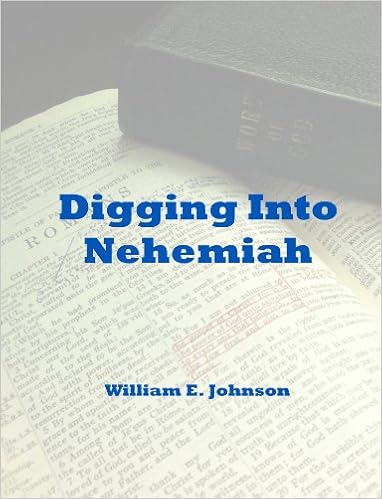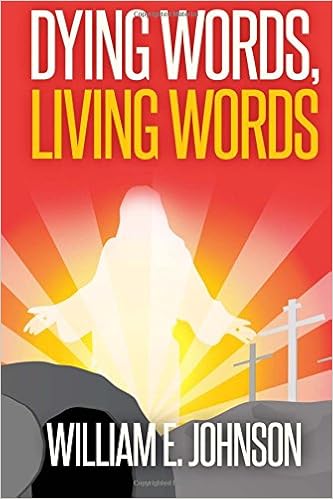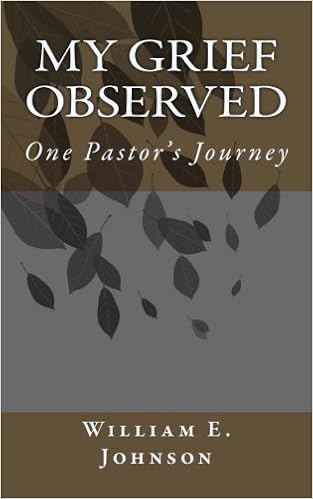The following is a raw, and largely unedited excerpt from the upcoming book "Digging Into Romans," which will be available soon on Amazon.com.
Watch for it here.
Read - Romans 13:8-14
Key Verse - Owe no one anything except to love one another, for he who loves another has fulfilled the law. (Romans 13:8 NKJV)
Key Thought - We should pay off financial debts,but we should never stop paying on our debt to love others.
Introduction
Every year on the 14th of February the world celebrates Valentine's Day. Did you ever wonder where that all got started?
The history of Valentine’s Day–and the story of its patron saint–is shrouded in mystery. We do know that February has long been celebrated as a month of romance, and that St. Valentine’s Day, as we know it today, contains vestiges of both Christian and ancient Roman tradition. But who was Saint Valentine, and how did he become associated with this ancient rite? The Catholic Church recognizes at least three different saints named Valentine or Valentinus, all of whom were martyred. One legend contends that Valentine was a priest who served during the third century in Rome. When Emperor Claudius II decided that single men made better soldiers than those with wives and families, he outlawed marriage for young men. Valentine, realizing the injustice of the decree, defied Claudius and continued to perform marriages for young lovers in secret. When Valentine’s actions were discovered, Claudius ordered that he be put to death. Other stories suggest that Valentine may have been killed for attempting to help Christians escape harsh Roman prisons, where they were often beaten and tortured. According to one legend, an imprisoned Valentine actually sent the first “valentine” greeting himself after he fell in love with a young girl–possibly his jailor’s daughter–who visited him during his confinement. Before his death, it is alleged that he wrote her a letter signed “From your Valentine,” an expression that is still in use today. Although the truth behind the Valentine legends is murky, the stories all emphasize his appeal as a sympathetic, heroic and–most importantly–romantic figure. By the Middle Ages, perhaps thanks to this reputation, Valentine would become one of the most popular saints in England and France.[“History of Valentine's Day”, http://www.history.com/topics/valentines-day/history-of-valentines-day]
There are other theories about the origin of the holiday, many rooted in pagan and Roman culture. But however the day came to be, Valentine's Day is a day to remember and celebrate love - one of the greatest gifts any of us ever receive.
So it is appropriate that our text is
Owe no one anything except to love one another, for he who loves another has fulfilled the law. (Romans 13:8 NKJV)
The Beatles sang the song, “All You Need Is Love.” Now if you go and read the lyrics to that song you'll come away wondering what they were talking about. But the chorus is what we all remember:
All you need is love
All you need is love
All you need is love, love
Love is all you need
Regardless of whatever else they were trying to say in the rest of that song, they hit on a nugget of truth in the chorus. Paul says something similar in our text, doesn't he?
Owe no one anything except to love one another, for he who loves another has fulfilled the law. (Romans 13:8 NKJV)
Now there are two clear thoughts in that verse, and so we can divide our study up into an outline just by using those two thoughts. On the one hand, we are to OWE NONE. On the other hand, we OWE ALL.
Owe None
OWE NO ONE ANYTHING except to love one another, for he who loves another has fulfilled the law. (Romans 13:8 NKJV)
Now the main thought in this section is love, but before we get to that main thought, we need to deal with this one. Paul has been talking about indebtedness -
Render therefore to all their due: taxes to whom taxes are due, customs to whom customs, fear to whom fear, honor to whom honor. (Romans 13:7 NKJV) Whatever is owed, to whomever it is owed, pay it. So his thoughts continue into
vs. 8 and naturally, as one would expect when dealing with the topic of indebtedness, turn to the financial.
At first glance we might be tempted to use this verse to teach that a Christian should never borrow money… that debt is always to be avoided. Many good Bible believers, including my favorite preacher of all time, Charles Spurgeon, believed that is exactly what this verse teaches. But to teach so would make this verse disagree with other scriptures.
For example we are told to lend to those who need it. In His Sermon on the Mount Jesus said,
Give to him who asks you, and from him who wants to borrow from you do not turn away. (Matthew 5:42 NKJV) So we can't take this one verse and adamantly proclaim that borrowing money is always wrong, because the Bible does not teach in other places that debt is always wrong. Rather it teaches that we should pay our debts (and that's how at least one other translation interprets this verse -
let no debt remain outstanding), and not defraud (
You shall not steal). We should not charge others exorbitant interest. We should work to pay for our needs (
For even when we were with you, we commanded you this: If anyone will not work, neither shall he eat. (II Thessalonians 3:10 NKJV). To not pay a debt is to steal from the lender. Clearly that is wrong, violating the 8th commandment. And to constantly use debt to obtain unnecessary items that we can't afford to pay for falls into the realm of coveting, and is therefore also clearly wrong, violating the 10th commandment.
So we cannot use this one verse to say NEVER borrow money. But comparing it to the rest of the Bible we can make the case that it is USUALLY dangerous and OFTEN wrong to borrow money. A major component in making the decision is knowing yourself. If you can't handle a credit card… If you can't pay it off each month, then you should not have it. If you have to struggle at the end of each month to pay off your credit card bills because you don't make enough money to cover your living expenses and your purchases for the month, then get rid of them. If you find yourself saying, “I'll start tithing and giving to God someday, but I can't afford to give now” because your bills are too high, then you need to get rid of the credit cards. We're clearly taught to worship God with our finances. (
On the first day of the week let each one of you lay something aside, storing up as he may prosper, that there be no collections when I come. (I Corinthians 16:2 NKJV) We're also clearly taught to save money for the future. Read
Proverbs and you'll find that taught throughout. So if you're in a situation where you can't save a penny because you are buried paying off credit card bills and your outgo exceeds your income, then you need to get rid of the credit cards and the debt.
Most people today, at least here in America, would benefit from taking Paul's words to heart and OWE NONE. Debt is almost always destructive and many carry a seemingly insurmountable burden of debt.
Older Americans are burdened with unprecedented debt loads as more and more baby boomers enter what are meant to be their retirement years owing far more on their houses, cars and even college loans than previous generations. The average 65-year-old borrower has 47% more mortgage debt and 29% more auto debt than 65-year-olds had in 2003, after adjusting for inflation, according to data from the Federal Reserve Bank of New York…[Josh, Zumbrun, “People Over 50 Carrying More Debt Than in the Past”, Wall Street Journal Feb 12, 2016]
Debt is a terrible burden that impoverishes so many. We tend to think that we are richer because we are surrounded by things, but since we don't actually own those things, but rather are indebted to somehow pay for them, they are actually an obligation and make us poorer! Just yesterday I saw a quote that said, “If you have no debts and $10 in your pocket you have more wealth than 25% of Americans.“
So Christian, Paul is clear here. In nearly every circumstance you should OWE NONE.
Before I get off this topic, let me remind you that at our church we have some tools in place to help you with these issues. "You mean the church will pay off my debts for me Pastor?” No. Of course not. One of the things we must all remember is that if we incur the debt, we must pay for it. Nobody else will do it for us. You want the thing. You also get the payments. So the church won't help you that way. But we can help by teaching you wise money management concepts from Scripture. Dave Ramsey's “Financial Peace University” is an excellent class that has helped multiplied thousands to defeat their debt problem. We have a certified instructor here and will be teaching another class soon, and who also offers one on one financial counseling. These are non-judgmental offerings that will HELP YOU.
I've been there - buried under debt. I've lived through the times where I hated to answer the phone because I knew the voice of a collector was probably what I would hear. Most in this room have been there. Some of us have learned to apply the Bible's teaching in this area and don't ever want to look back. I GUARANTEE that you will be better off if you handle your money God's way. That doesn't mean you will be rich, but it does mean that you will be happier, and healthier, and more whole.
So, the first principal from our text this morning is, OWE NONE. The second might sound a bit like a contradiction:
Owe All
There is one area where we are indebted and can never pay off the debt. There is one payment that we will make and must make forever. We are indebted to LOVE ONE ANOTHER.
Its interesting that Paul described it as a debt, as something we owe.
Owe no one anything EXCEPT TO LOVE ONE ANOTHER, for he who loves another has fulfilled the law. (Romans 13:8 NKJV)
So, just as we are to render to Caesar what is Caesars, and to God what is God's… Just as we are to
Render therefore to all their due: taxes to whom taxes are due, customs to whom customs, fear to whom fear, honor to whom honor. (Romans 13:7 NKJV), so we are to render to others what we owe them - love. This is the greatest obligation that any of us have. Jesus said the greatest Commandments were to love God and love each other.
Jesus said to him, You shall love the LORD your God with all your heart, with all your soul, and with all your mind. And the second is like it: You shall love your neighbor as yourself. On these two commandments hang all the Law and the Prophets. (Matthew 22:37, 39-40 NKJV)
Over and over we're taught this truth:
“A new commandment I give to you, that you love one another; as I have loved you, that you also love one another. "By this all will know that you are My disciples, if you have love for one another.” (John 13:34-35 NKJV)
Let all that you do be done with love. (1 Corinthians 16:14 NKJV)
And walk in love, as Christ also has loved us and given Himself for us, an offering and a sacrifice to God for a sweet-smelling aroma. (Ephesians 5:2 NKJV)
But above all these things put on love, which is the bond of perfection. (Colossians 3:14 NKJV)
We know that we have passed from death to life, because we love the brethren. He who does not love his brother abides in death. … And this is His commandment: that we should believe on the name of His Son Jesus Christ and love one another, as He gave us commandment. (1 John 3:14, 23 NKJV)
Beloved, let us love one another, for love is of God; and everyone who loves is born of God and knows God. … Beloved, if God so loved us, we also ought to love one another. … And this commandment we have from Him: that he who loves God must love his brother also. (1 John 4:7, 11, 21 NKJV)
So in the matter of finances, we strive to OWE NONE, but in the matter of loving one another, we OWE ALL. Where we may (and should) work diligently to get OUT of debt in other areas, and where we may consider a debt to be a temporary burden, LOVE is a forever debt. We are never delivered from this obligation… And we never make the last payment.
Now Paul makes an interesting distinction in this verse that might not be immediately obvious. When he said “another” here he used the Greek word HETEROS which is one of a couple of Greek words that equate to the English word “another”. HETEROS literally means “another of a different kind.” This contrasts with another Greek word - ALLOS, which means another of the same kind.
Vine's explanation of the difference between HETEROS and ALLOS is very helpful:
Allos (ἄλλος, 243) and heteros (ἄλλος, 2087) have a difference in meaning, which despite a tendency to be lost, is to be observed in numerous passages. Allos expresses a numerical difference and denotes “another of the same sort”; heteros expresses a qualitative difference and denotes “another of a different sort.” Christ promised to send “another Comforter” (allos, “another like Himself,” not heteros), John 14:16. Paul says “I see a different (kjv, “another”) law,” heteros, a law different from that of the spirit of life (not allos, “a law of the same sort”), Rom. 7:23. After Joseph’s death “another king arose,” heteros, one of quite a different character, Acts 7:18. Paul speaks of “a different gospel (heteros), which is not another” (allos, another like the one he preached), Gal. 1:6-7. [Vine, W.E., “Vine's Complete Expository Dictionary Of Old And New Testament Words”]
The point is simply this - Paul's words here go beyond the family of God. We know and accept that we should love one another as brothers and sisters in the the church. We've seen that truth put forth before in
Romans.
“Be kindly affectionate to one another (ALLOS) with brotherly love, in honor giving preference to one another (Romans 12:10 NKJV) There he spoke of our loving other Christians - those who are like us. Here, he speaks of how we treat others in general - both saved and unsaved - those who are different from us. And our debt is the same to either. We are to love them.
Do you not grow weary with how our culture puts value on certain people and less value on others? There is a tendency with some to put more value on the life of a child than the life of an adult. There is the even more prevalent tendency in our culture today to value the life of an adult more than the life of a child - especially if the child is not yet born. There is the tendency to value the life of a woman more than the life of her unborn child. There are groups like ISIS which are easily dismissed as unlovable. And in the politically charged environment in which we live, it's awfully easily to think those who espouse similar viewpoints to our own are loveable while the opposite is true of those who think differently. Today we have to listen to constant refrains like “black lives matter” and in it's wake every other group has come up with a “FILL IN THE BLANK lives matter.”
The fact is, ALL LIVES MATTER. The clear teaching of Scripture is that every child, every woman, every man, every teenager, every homeless person, every black, every white, every brown, every lost, every saved, EVERYBODY is unbelievably loved by God. And we are to love EVERYBODY in that same way. None are MORE important. And none are LESS important.
That's a key component to the gospel. “The Christian gospel is that I am so flawed that Jesus had to die for me, yet I am so loved and valued that Jesus was glad to die for me.” (Keller)
Thom Ranier told of how one church loving the unchurched made a difference:
Gloria S. was ready to take her life. Years of drug abuse, failed relationships, and multiple rejections had taken their toll. Prepared with countless prescription drugs she saved for the purpose, Gloria turned on the television to keep her neighbors from hearing. The channel was tuned in to a Billy Graham crusade. At the bottom of the screen was a telephone number for anyone needing help. Gloria called the number before she took the pills. The counselor recognized the seriousness of Gloria's situation. She directed Gloria to a nearby Wesleyan church where someone would be able to help her. Gloria decided to put off her suicide and attend the church the next day, Sunday. Just before the worship service began, Gloria met the pastor. “Billy Graham sent me,” she told him. Sometime later, Gloria was able to give this testimony. Billy Graham saved me from killing myself, but my church showed me how to be saved from my sins. The love of the people was incredible. I never knew someone as dirty as me could ever receive love again. The people accepted me just as I was. I have seen Jesus. He is in the faces of all these people who love me.[Thom S. Rainer, Surprising Insights From the Unchurched, (Zondervan, 2001) p. 166]
In his book, Sources of Strength, President Jimmy Carter shared this lesson.
After a personal witnessing experience with Eloy Cruz, an admirable Cuban pastor who had surprising rapport with very poor immigrants from Puerto Rico, I asked him for the secret of his success. He was modest and embarrassed, but he finally said, “Senor Jimmy, we only need to have two loves in our lives. For God, and for the person who happens to be in front of us at any time.” That simple yet profound theology has been a great help to me in understanding the Scriptures. In essence, the whole Bible is an explanation of those two loves.[Jimmy Carter, Sources of Strength, Meditations on Scripture for a Living Faith, Times Books, 1997, p. xvii]
Augustine said, “Disturbers are to be rebuked, the low-spirited to be encouraged, the infirm to be supported, objectors confuted, the treacherous guarded against, the unskilled taught, the lazy aroused, the contentious restrained, the haughty repressed, litigants pacified, the poor relieved, the oppressed liberated, the good approved, the evil borne with, and ALL ARE TO BE LOVED.”
[Aurelius Augustine, Leadership, Vol. 10, no. 4]
So with regard to financial obligations, we should OWE NONE. But with regard to our obligation to love others, we have a never ending, impossible to pay, debt - we are to OWE ALL.
One last thought jumps out at me from this passage.
Paul says
Love does no harm to a neighbor; therefore LOVE IS THE FULFILLMENT OF THE LAW. (Romans 13:10 NKJV) I know that many teach that as Christians you need not fulfill the 10 commandments. But I don't think that is Biblical. The CORRECT teaching of Scripture, and that taught by Paul here, is that “as Christians your guiding principal is to love one another, and if you truly do that, you WILL fulfill the 10 commandments.”
Notice what he is saying here - If you love somebody you cannot hate them or murder them. If you love somebody you will not steal from them. If you love somebody you will not lie or cheat them. If you love somebody you will do nothing harmful to them. You will fulfill the law! But you will do so because you are motivated by love and not by compulsion.
We love Christ, therefore we obey Him… therefore we follow Him.
We love others, therefore we do good and right to them… therefore we do no harm to them. We can spend our time trying to live up to God's moral law, or we can just concentrate on loving God and loving others. The former will frustrate. The latter will succeed.
Conclusion
Well, maybe you're struggling with this a bit. Maybe this kind of loving others seems impossible to you. If so, consider one final verse -
But the fruit of the Spirit is love, joy, peace, longsuffering, kindness, goodness, faithfulness, gentleness, self-control. Against such there is no law. (Galatians 5:22-23 NKJV). Notice that this love Paul talks about doesn't come naturally. It is the fruit of the Holy Spirit working in our lives. As such, it's pretty easy to see that a prerequisite for this kind of love is having the Holy Spirit's working in our lives, and that only comes to those who are saved. So if you are struggling with loving as Paul teaches here, perhaps your struggle is deeper. Perhaps you're not born again. Perhaps you've never been saved. Perhaps you are still lost in your sins and have never trusted Christ.
I see a few challenges from this text:
- Some need to consider the instruction to OWE NONE and have a little talk with Jesus about their mismanagement of finances. Is that you?
- Some need to consider the instruction to OWE ALL. There is no loop hole here whereby you can excuse your lack of love for others. You owe a debt - you're to love others. How are you doing with that? Is the Holy Spirit bringing a face into your mind right now… perhaps someone you've struggled to love? Maybe it's not a face, but rather a group or class of people you have trouble with. Where some of us may need to pray for help with financial debt, ALL of us need to pray for help with the love debt, because ALL of us owe it.
- Some might need to consider that they struggle with this because they don't have the resources to live it. Only the saved can love others rightly. Are you saved? Are you born again? If you are uncertain, then you must call upon the name of the Lord… you must receive Christ as your Savior… you must believe and saved… you must be born again. Do it now. Then and only then can you love as you are loved.




